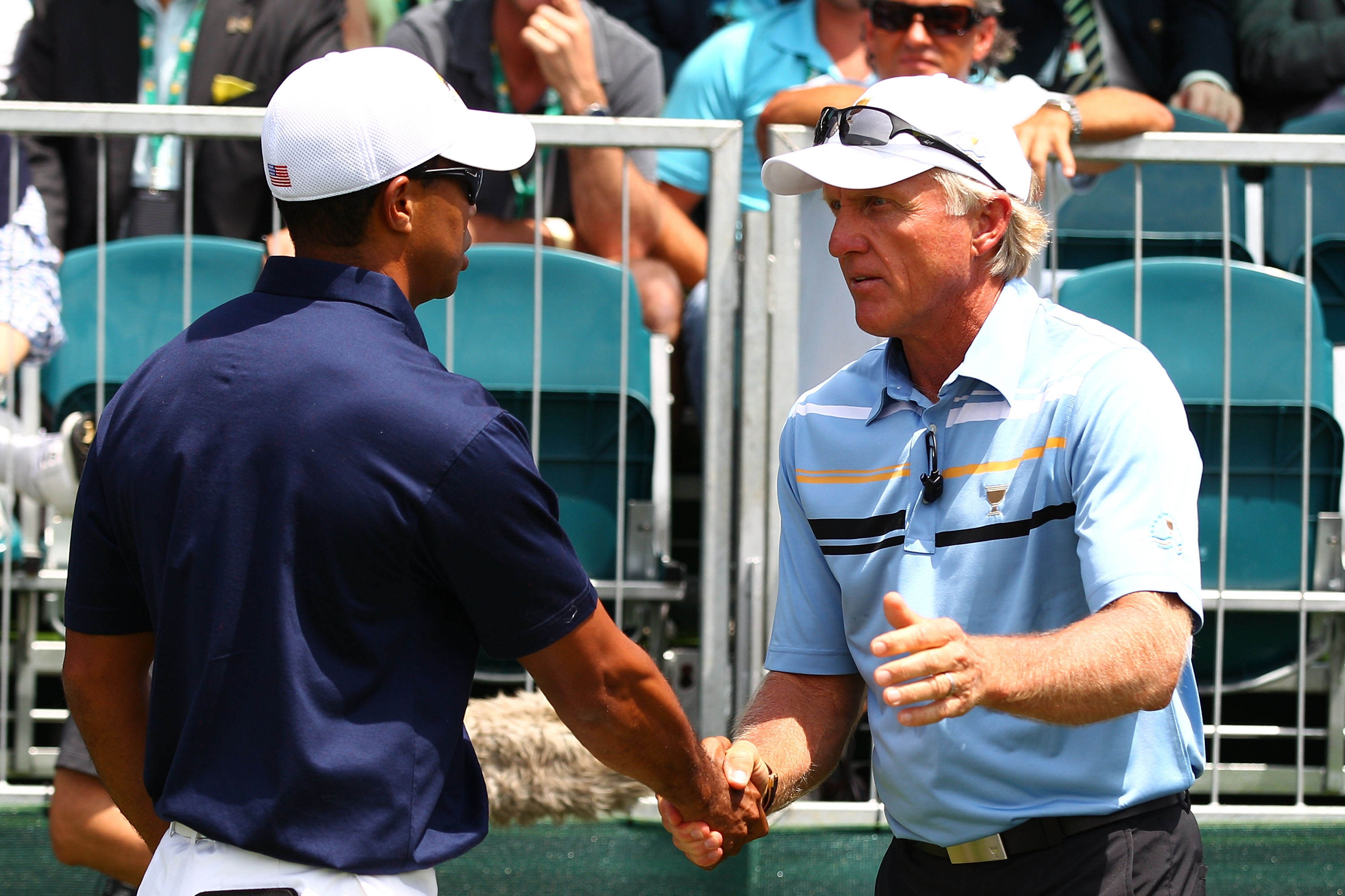Do you get it now? Do you finally understand why Tiger Woods always received an outsized amount of attention?
It wasn’t just after the wide peak of Tiger’s career, but even during his decade-plus run of dominance, folks would complain about all the attention given to the World No. 1.
Network cameras followed him from car to clubhouse, from clubhouse to practice tee, and lord knows, through every shot over 18 holes.
I’d occasionally find myself explaining why networks did such things — “Tiger Woods lacing his spikes would draw better TV ratings than Davis Love shooting a Sunday 62.” NBC, CBS and the others pay their bills by giving viewers what they want to see.
A kinda-sorta vindication came this past week when Tiger was revealed as the PGA Tour’s $15 million man. That’s Tiger’s payout for winning the Tour’s 2022 Player Impact Program, a media-driven bonus plan based, basically, on how much attention a player brings to the PGA Tour.
This despite Tiger entering just three tournaments and playing nine competitive rounds this year.
Oh, by the way, Tiger also won it last year when he was initially recovering from his leg injuries and entered just one event, a 36-hole exhibition where he could ride a cart.

Greg Norman and Tiger Woods during the 1999 British Open.
How Greg Norman helped make Tiger Woods richer
If this type of bonus pool had been around in Bobby Jones’ day, he would’ve had to rethink that amateur status. Arnold Palmer would’ve owned the PIP from the late-’50s onward, even long after the mid-’70s when he was rarely challenging — much less charging — on Sundays.
It’s also fair to say, back before Tiger exploded onto the scene, there were several years when Greg Norman, filled to the eyeballs with golfing talent and sex appeal, would’ve further cashed in on a PIP.
And since we’re here, it’s fair to suggest Tiger Woods owes a chunk of that 15 mil to golf’s Great White Shark, or at least to the Saudis funding Norman’s LIV Golf disruption.
Feeling the need to enhance benefits to the biggest stars, the PGA Tour began the PIP last year with a $40 million tank of money spread among the top 10 players, based on a variety of metrics determining player popularity.
Tiger earned $8 million for topping the inaugural chart. This year, with Norman and the Saudis dangling tens of millions of guaranteed “purse” money at golf’s biggest stars, and along with defending its Bermuda grass in other ways, the PGA Tour upped the PIP payoff to $100 million spread among the top 20 attention-getters.
The Tour this year also announced major lifts in purses for several “elevated” tournaments, with an accompanying commitment from the best players to compete against each other in at least a dozen specific tournaments beginning next year, as well as committing to a minimum of 20 Tour events.
No coincidence, of course. If the Tour had just girded for this turf war and tried to quash the LIV tour with its available manners of defense, without also giving its remaining stars (Rory McIlroy, Jordan Spieth, etc.) additional reasons to ignore the LIV offers, its leverage would be lessened.
Why didn’t the Tour dig deeper years ago to get out in front of a potential rival league? Because the Tour didn’t have to. There was no deep-pocketed rival, much less one with a bottomless well of cash.
A year or so ago it was suggested, here and elsewhere, that the eventual hang-up for those defecting to LIV would be world-ranking points, which are a key factor in determining who’s eligible for golf’s biggest tournaments, particularly the four majors.
That’s proven true as that battle now includes lawyers on the first tee.
Next up, it seems, will come questions regarding a return on investment. Not sure what LIV’s benefactors were aiming for when their tour was launched, but widespread condemnation from the traditional golf world, along with all the dirty laundry brought out on display, couldn’t have been the overriding goal.

Tiger Woods of the United States hits balls on the range during the final round of the Hero World Challenge at Albany Golf Course on Dec. 5, 2021, in Nassau,. (Photo by Mike Ehrmann/Getty Images)
“Next on the tee: Tiger Woods”
Meanwhile, over each of the next three weeks, Tiger will play a version of competitive golf, beginning with the 72-hole, no-cut, 20-man Hero World Challenge in The Bahamas, where he serves as host.
The following Saturday (Dec. 10) is “The Match,” a now-annual 18-hole exhibition, this year pitting Tiger and Rory against Spieth and Justin Thomas. The following weekend is the Father-Son Challenge in Orlando, where Tiger and Charlie Woods will likely contend.
And everyone will watch, looking for a sign that Tiger has healed enough to consider an uptick in 2023 outings and performance.
The circumstances were different, but for years after his final Tour win in 1973, Arnold Palmer remained the focus of attention (and hope), and for decades he continued reigning atop the annual list of highest-grossing athletes.
Arnie’s long run as “richest athlete” was an unofficial title, to be sure, but one Tiger will likely challenge and gladly accept.
Ken Willis is a longtime reporter/columnist at the Daytona Beach News-Journal, part of the USA Today Network. Reach him at ken.willis@news-jrnl.com.

